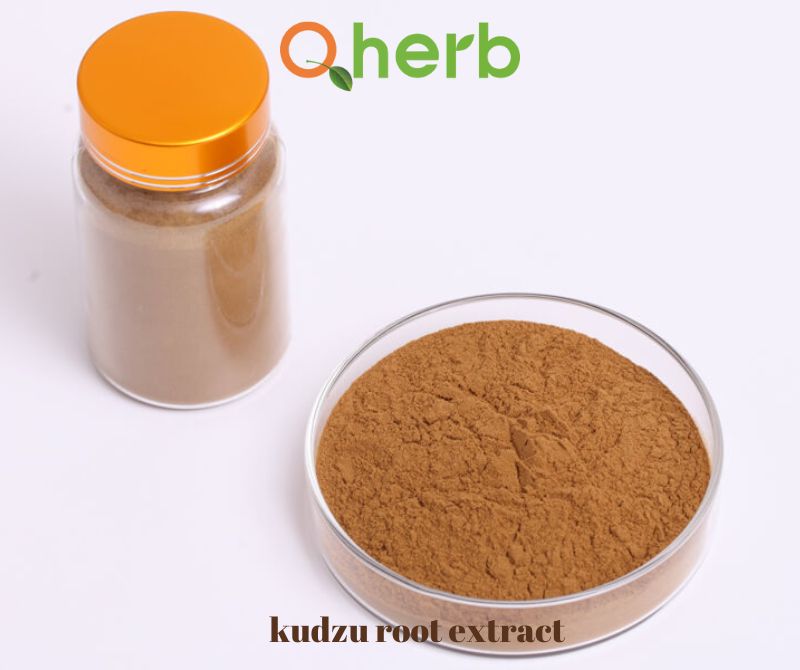The KUDZU ... the revolutionary anti addiction plan
Kudzu is a plant native to the East that climbs in the trees and clings everywhere, blooming a little like wisteria, but with purple flowers. Kudzu can grow up to twenty meters per season. As a result, kudzu has become invasive, especially since it has become acclimated all over the world at the moment. In the United States for example, kudzu is a real scourge because it spreads by smothering the plants it finds in its path and very large sums are committed to limit its expansion. But, at "small dose", the plant, however, has qualities! Indeed, it can help fight against certain addictions.
The Kudzu Root Extract: what it is and what it does
Origins
The kudzu (Pueraria lobata), is a climbing legume native to East Asia (China, Korea and Japan), whose stems can extend for 15 meters, with deep roots and flowers reminiscent of those of the pea.
History
The root of kudzu, known in China also as Ge gen, has been a fundamental element of traditional Chinese medicine for thousands of years. It has always been used in fact to treat the symptoms of alcoholism or alcohol poisoning. Testimonies dating back to 600 AD attest to the use of Pueraria lobata, associated with other plants, to treat these phenomena. It was introduced in the United States as a plant useful to strengthen the yielding soils thanks to its vast complex of roots. Nowadays it is seen as a simple weed.
Composition
The Kudzu Root Extract contains flavonoids, coumarins and isoflavones, especially daidzine, daidzein, genistein, genistin and puerarin.
Benefits
The Kudzu Root Extract is mainly used to combat withdrawal symptoms, to treat alcohol addiction and alleviate menopausal discomfort.
Help with smoking cessation and alcohol
To help them get their health back on their feet, you can direct them to new plants to support their efforts and naturally stop smoking, alcohol or other "soft" drugs. Some plants have already proven effective such as Avena sativa, more commonly known as oats, St. John's wort or Griffonia simplicifolia rich in 5-HTP which can increase serotonin levels in the body and therefore significantly improve the 'mood. If your customers have already tried these plants without success, recommend them Kudzu (Pueraria lobata), which you will pronounce "coudzou". Native to Southeast Asia, this plant is widespread in China, Japan and India. It has been used in Chinese medicine for decades to fight against allergies, migraines and diarrhea.
A soothing and soothing action
Kudzu root contains very active substances such as daidzin, daidzein and puerarin that are grouped under the term of isoflavones. These substances, also present in soy, have a soothing and soothing action by acting on the central nervous system and thus allow to feel the cravings and impulses towards these toxic substances. The studies, which have been carried out until now on animals, should soon be confirmed in men. However, the experiments already done on average smokers gave very good results in just a few days. Even the patches purchased "help" at the pharmacy have not been used! No feeling of lack, no irritability, everything goes smoothly and without side effects.
A detox action
This plant is not content to limit the impulses, since simultaneously, it reduces the damage that these toxins have been able to generate over time on the body. By stimulating the activity of certain enzymes, Kudzu root helps to fight against the oxidative stress produced by the consumption of cigarettes and alcohol and thus limits their harmful effects. In China, the herbal tea of ??this plant is also used to limit the harms of feasted meals. Thus, taking kudzu could reduce the famous "hangover" the next morning.
A beneficial action against cardiovascular diseasess
Kudzu Root Extract use has also proven effective in lowering blood pressure, improving blood circulation and reducing inflammation, making it an excellent supplement in the treatment of cardiovascular diseases (angina pectoris, myocardial infarction and high blood pressure).
Potential positive effects for diabetics
Action on pancreas metabolism and oxidative stress: In the rat, experiments have shown the protective effect of puerarin on certain pancreatic cells responsible for the secretion of insulin. It inhibits the programmed death of these cells, stimulates the secretion of insulin and finally, inhibits the production of free radicals by increasing the activity of catalases and Superoxide Dismutases (SOD).



 Healthier Future
Healthier Future